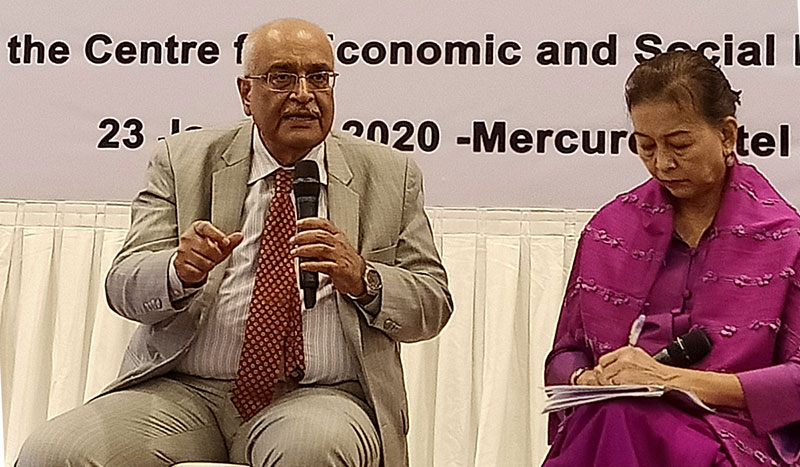
Markets have a role in terms of economic empowerment, labour and credit supply. These requires government’s policy in terms of a supporting environment. At the micro-level, society has an important role in terms of altering attitudes and behaviour of men and women that can promote women’s rights and gender equality.
Dr Debapriya Bhattacharya, Distinguished Fellow, CPD, made these remarks while making the keynote presentation on “Gender Equality: Prioritising Actions SDG context: Global and South Asian Experience” at “A Roundtable Discussion on Sustainable Development Goals and Gender Equality: Prioritizing actions for the next decade”. This event was organised by International Development Research Centre (IDRC) and the Centre for Economic and Social Development (CESD) on 23 January 2020 at Yangon, Myanmar.
Presenting a broader overview, Dr Bhattacharya emphasised the paramount need for government intervention in promoting women’s rights in terms of justice, politics and service delivery.
“In order to reach SDG Goals, Myanmar needs concentration on disaggregated data, monitoring gender-focused indicator, gender budget and allocative priorities and gender-sensitive results framework are to be practiced”, said Dr Bhattacharya.
The discussion at the round-table focused on global progress card on SDG in regards to gender equality points to mixed progress. Evidence points out that women’s political representation at the micro-level appears to be far more effective in changing gender relationships than at higher levels. Addressing issues like child marriage, violence against women, at the local level by public representatives at the local level is found to be effective in South Asian countries like India and Bangladesh.
As part of knowledge for Democracy initiative, this policy round table has brought together researchers and practitioners, taking stock of the existing research evidence vis-a-vis gender gaps at global, south Asian region and Myanmar levels and ways to address the same.


